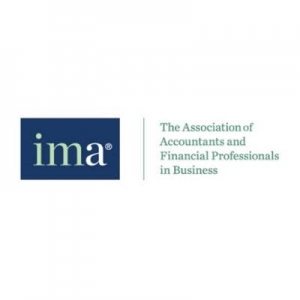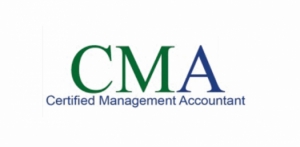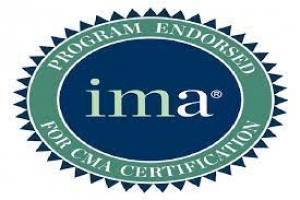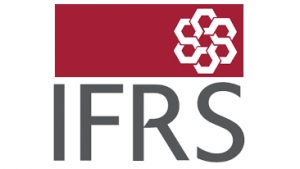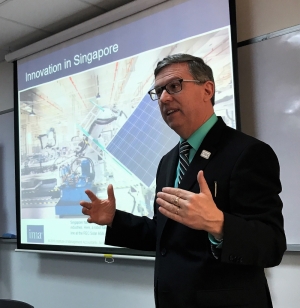عرض العناصر حسب علامة : IMA
IMA يطلق برنامج شهادة الأمن السيبراني وممارسات البيانات
سيمنح برنامج الشهادة الجديد المتخصصين في المحاسبة والمالية الأدوات والمعرفة اللازمة لمعالجة مشكلات الأمن السيبراني داخل مؤسساتهم
معهد المحاسبين الإداريين يطلق مسابقة الحالة الدراسية للطلاب 2023
المسابقة العالمية ستشهد تحدي الطلاب لاختبار قدراتهم ومهاراتهم المالية والمحاسبية من خلال النهائيات التي ستقام في مايو 2023
IMA تصدر تقرير حول المخاطر المناخية والاستعداد في الأعمال
أصدر معهد المحاسبين الإداريين IMA ورقة خضراء تقدم رؤى حول كيفية استجابة الوظائف المالية للشركات لتغير المناخ ومخاطر الأعمال المستدامة الأخرى
معهد المحاسبين الإداريين يطلق برامج الشهادات للتثقيف في مجالين من مجالات الأعمال الناشئة
ستمنح برامج الاستدامة الجديدة وشهادة DE&I متخصصي المحاسبة والمالية الأدوات والمعرفة لمعالجة المشكلات في مؤسساتهم
125 منحة يوفرها معهد المحاسبين الإداريين في الأردن
أعلن معهد المحاسبين الإداريين (IMA)، أحد أكبر التنظيمات المهنية وأكثرها احتراماً والتي تركز حصرياً على الارتقاء بمهنة المحاسبة الإدارية، عن منح 125 طالباً طموحاً في مجالات المالية والمحاسبة في الأردن فرصة استثنائية لصقل مهاراتهم من خلال “شهادة المحاسب الإداري المعتمد” CMA المرموقة عالمياً.
معهد المحاسبين الإداريين يكشف عن تقريره الجديد بعنوان التمثيل المرئي للبيانات
أصدر معهد المحاسبين الإداريين (IMA) تقريراً جديداً يحمل عنوان "التمثيل المرئي للبيانات" ويؤكد على أهمية الرسوم الديناميكية المصورة في مجالات المالية والمحاسبة
مؤسسة IFRS تشكل مجلس معايير الاستدامة الدولية، وتدمج مؤسسة الإبلاغ عن القيمة VRF ومجلس معايير الإفصاح عن المناخ CDSB
أطلقت مؤسسة المعايير الدولية لإعداد التقارير المالية رسمياً مجلس معايير الاستدامة الدولية يوم الأربعاء الماضي وأعلنت عن خطط لتوحيد مؤسسة الإبلاغ عن القيمة -المجموعة المدمجة حديثًا التي توحد مجلس معايير محاسبة الاستدامة مع المجلس الدولي للإبلاغ المتكامل -بالإضافة إلى مجلس معايير الإفصاح عن المناخ، وهو مبادرة من مشروع الافصاح عن الكربون بحلول يونيو 2022.
معلومات إضافية
-
المحتوى بالإنجليزية
IFRS Foundation forms International Sustainability Standards Board, consolidates VRF and CDSB
By Michael Cohn
November 03, 2021, 6:45 a.m. EDT
17 Min Read
Facebook
Twitter
LinkedIn
Email
Show more sharing options
The International Financial Reporting Standards Foundation formally launched the International Sustainability Standards Board on Wednesday and announced plans to consolidate the Value Reporting Foundation — the recently merged group uniting the Sustainability Accounting Standards Board with the International Integrated Reporting Council — as well as the Climate Disclosure Standards Board, an initiative of the Carbon Disclosure Project, by June 2022.
The move to merge together the VRF, SASB, the IIRC and the CDSB within one sustainability standard-setter comes in response to demands from financial regulators at the International Organization of Securities Commissions and investors for more alignment between the sometimes competing standards and frameworks for environmental, social and governance reporting, to avoid greenwashing by companies. The formal launch was timed to coincide with the United Nations’ COP26 climate change conference in Glasgow, Scotland, where world leaders are meeting to talk about how to curb the accelerating pace of rising temperatures and natural disasters across the planet. The new International Sustainability Standards Board is expected to develop a comprehensive global baseline of high-quality sustainability disclosure standards to meet investors’ information needs.
Last year, SASB and the IIRC announced plans to merge to form the Value Reporting Foundation, with the possibility of the CDSB joining them as well. The three groups, along with the Carbon Disclosure Project and the Global Reporting Initiative, all agreed to further align their standards, but the IFRS Foundation, which also oversees the International Accounting Standards Board, soon announced its own plans to explore the creation of an International Sustainability Standards Board that it would oversee alongside the IASB (see story). Most of the other standard-setters had agreed to participate in a Technical Readiness Working Group for the proposed ISSB, but now it appears most of them will be absorbed into the new ISSB. The GRI, however, is still expected to remain independent after the ISSB is formed.
Input a lease in as little as 3 minutes with LeaseCrunch
SPONSOR CONTENT FROM LEASECRUNCH
“Sustainability, and particularly climate change, is the defining issue of our time,” said IFRS Foundation chair Erkki Liikanen in a statement. “To properly assess related opportunities and risks, investors require high-quality, transparent and globally comparable sustainability disclosures that are compatible with the financial statements. Establishing the ISSB and building on the innovation and expertise of the CDSB, the Value Reporting Foundation and others will provide the foundations to achieve this goal.”
They are also publishing prototypes of climate and general disclosure requirements developed by the Technical Readiness Working Group, a group formed by the IFRS Foundation Trustees to undertake preparatory work for the ISSB. The prototypes are the result of six months of joint work by representatives of the CDSB, the IASB, the Financial Stability Board’s Task Force on Climate-related Financial Disclosures (TCFD), the VRF and the World Economic Forum, supported by the International Organization of Securities Commissions (IOSCO) and its Technical Expert Group of securities regulators. The TRWG has consolidated some aspects of these organizations’ content into a unified set of recommendations for consideration by the ISSB.
The ISSB will sit alongside and work in close cooperation with the IASB to provide connectivity and compatibility between IFRS accounting standards and the ISSB’s standards, which will be called IFRS Sustainability Disclosure Standards. Both boards will be overseen by the IFRS Foundation trustees, who in turn will be accountable to a Monitoring Board of capital market authorities responsible for corporate reporting in their jurisdictions. The ISSB and the IASB will be independent, and their standards will complement each other to provide comprehensive information to investors and other providers of capital.
‘Development of the ISSB’s global baseline will deliver transformative change in sustainability disclosures for the financial markets,” Mary Schapiro, former chair of the Securities and Exchange Commission, and current head of the TCFD Secretariat, said in a statement. “The TCFD welcomes the formation of the ISSB, which builds upon the foundation of the globally-accepted TCFD framework and the work of an alliance of sustainability standard setters. The ISSB represents a major step forward in establishing consistent, comparable global reporting standards.”
Richard Sexton and Robert K. Steel, co-chairs of the Value Reporting Foundation Board, backed the move to consolidate their organization within the new ISSB. “Today’s announcement is a reflection of the changed world we live in — a world in which sustainability and long-term thinking are increasingly at the heart of business and investor decision-making,” they said in a joint statement. “This is a transformation that both the IIRC and SASB helped lead, made possible by the many thousands of stakeholders who volunteered time and offered resources to develop the Integrated Thinking Principles, Integrated Reporting Framework and SASB Standards that are today used by businesses and investors around the world. The Value Reporting Foundation Board believes the consolidation announced today will help deliver effective disclosures to drive global sustainability performance. We count on your continued collaboration as we embark on this exciting next step.”
CDSB chairman Richard Samans and CDP CEO Paul Simpson also issued a joint statement of support. “CDP pioneered environmental disclosure 20 years ago and has hosted CDSB since its formation in 2007,” they stated. “CDSB’s global partnership of business and environmental organizations supported by the international accounting community was formed to create a generally-accepted framework for corporate reporting of material climate, environmental and social information to investors and regulators.”
The ISSB plans to develop IFRS Sustainability Disclosure Standards, including disclosure requirements to address companies’ impacts on sustainability matters relevant to assessing enterprise value and making investment decisions. The ISSB standards will be developed to facilitate compatibility with requirements that are jurisdiction specific or aimed at a wider group of stakeholders (such as the European Union’s planned Corporate Sustainability Reporting Directive as well as initiatives in the Americas and Asia-Oceania).
The G20 Finance Ministers and Central Bank Governors and the Financial Stability Board both welcomed the IFRS Foundation’s work program to develop global baseline standards for sustainability disclosures.
The IFRS Foundation reached commitments with the CDSB, whose secretariat is hosted by CDP, and the VRF to consolidate their technical expertise, content, staff and other resources with the IFRS Foundation. The technical standards and frameworks of the CDSB and the VRF, along with those of the TCFD and the Forum Stakeholder Capitalism Metrics, will provide a basis for the technical work of the new board.
“We become part of the IFRS Foundation,” said Neil Stewart, director of corporate outreach at the Value Reporting Foundation. “We become the foundation of the ISSB. What’s really great is that this is not just a matter of us handing over our standards and riding off into the sunset. This is really consolidating our people, our relationships, our IP. We’re bringing over a decade of work, of partners, of all those networks and relationships that have gone into the creation of the SASB standards and the integrated reporting framework. We’re bringing that into the ISSB. Don’t just look at this as a set of standards and a framework that they pick up and run with. It’s a whole ecosystem that now is kind of like a chrysalis coming out and hatching into the ISSB.”
Recognizing the urgency and the desire to provide the ISSB with a solid foundation on which to start its work, the trustees created the TRWG, which includes representatives from the CDSB, TCFD, IASB, VRF and the World Economic Forum, to provide recommendations to the ISSB. The TRWG has concluded its work on two prototype documents that were published Wednesday, one focusing on climate-related disclosures that build on the TCFD’s recommendations, and include industry-specific disclosures, and a second setting out general sustainability disclosures. The intention is for the ISSB to consider the prototypes as part of its initial work program.
The ISSB will also draw upon expertise from several advisory groups. Technical advice on sustainability matters will be provided to the ISSB by a new Sustainability Consultative Committee, whose members will include the International Monetary Fund, the Organization for Economic Cooperation and Development, the United Nations, the World Bank and other experts drawn from public, private and nongovernmental organizations.
The remit and expertise of the IFRS Advisory Council will be extended to provide strategic sustainability-related advice and counsel to the ISSB, as well as the IFRS Foundation trustees and the IASB. Finally, the trustees have formed a working group to create a mechanism for formal engagement on standard-setting between the ISSB and jurisdictional representatives, including from emerging markets (similar to the Accounting Standards Advisory Forum, which plays this role for the IASB).
The IFRS Foundation said it intends to leverage the existing CDSB and VRF advisory groups, which include investors and other experts who have demonstrated long-standing support for improved sustainability disclosure. In addition, the World Economic Forum’s private sector coalition will be engaged. The IFRS Foundation intends to use the International Integrated Reporting Council to give it advice on establishing connectivity between the work of the IASB and the ISSB through the fundamental concepts and guiding principles of integrated reporting.
The ISSB will have a global and multi-location presence. All regions of the world — the Americas, Asia-Oceania and EMEA (Europe, the Middle-East and Africa) — will be covered. Engagement with developing and emerging economies will also be a big priority.
The IRS Foundation Trustees are currently in advanced stages in appointing a chair and vice-chair(s) to the ISSB. They have also begun to search for additional board members up to the full complement of 14 members .
The ISSB’s work is expected to begin as soon as the chair and vice-chairs have been appointed and to begin with public consultations to inform the ISSB’s work plan and on proposals informed by recommendations from the TRWG. Following these consultations, the ISSB’s work will follow the IFRS Foundation’s due process, including public discussions by the ISSB of feedback received in response to consultations and possible improvements to the proposals prior to their finalization as standards. The entire process will be overseen by the IFRS Foundation trustees’ Due Process Oversight Committee.
It’s unclear what will happen to the ongoing work of the Value Reporting Foundation and its SASB Standards Board, as well as the new board members that the VRF named only last week, but Stewart said they would continue to meet and work on their new standards until the merger closes next June. The VRF and SASB Standards Board had been working on other initiatives besides climate change issues, in the areas of human capital, diversity, mining industry tailings management, internet content moderation and other projects.
“It’s important for us not to preempt the work of the ISSB,” said Stewart. “The chair, vice chair and board members haven’t been named. The very first thing that has to happen is for the ISSB to go out on a public consultation, not only on the climate disclosure standard, which should be the first order of business because of the urgency of climate change, they will be consulting too on what will be their priority issues. The ISSB will need to follow a very rigorous due process, which the IFRS Foundation is uniquely positioned to steer because of their history with the IASB. I would never say that here is the ISSB’s research agenda and it includes all of these research projects because it doesn’t exist yet. They have to do that public rigorous process, but those projects won’t stop in their tracks tomorrow. The SASB standards will continue to be maintained and used in the near future and the near and median term as the ISSB gets set up and they go through the initial process with the climate disclosure standard and get up and running. The merger won’t close for another eight months, and in the meantime everything keeps running.”
Reactions
Another ESG standard-setter, the Global Reporting Initiative, has not announced plans to become part of the ISSB, but expressed its readiness to engage with the group.
“GRI is pleased that the IFRS Foundation has recognized the merits of incorporating sustainability considerations into financial disclosures, through the creation of a sustainability standards board,” said GRI interim CEO Eric Hespenheide in a statement. “We also welcome that the reporting organizations with a core focus on investors needs are to come together under one house. We advocate for a comprehensive corporate reporting system, with a two-pillar structure in which robust sustainability and financial reporting are on an equal footing. The sustainability pillar, under which GRI sits, addresses a company’s external impacts on society and the environment, while the financial pillar needs to reflect sustainability risks to a company’s value. Today’s announcement marks a significant step toward strengthening that second pillar. Disclosure on a company’s financially material sustainability topics — while important from the context of helping markets to assess opportunities and risks — is not sufficient to deliver full transparency on sustainability impacts, as envisioned by the GRI standards and embraced by the EU. Corporate transparency that meets the needs of all stakeholders requires improved connectivity between sustainability and financial reporting. I therefore reiterate once again that GRI stands ready to engage with the IFRS Foundation in support of this aim. We look forward to hearing more about the remit and scope of their new ventures, as well as inputting to the development of the proposed climate standard.”
KPMG welcomed the new group. “Today’s announcement by the IFRS Foundation is a watershed moment for sustainability disclosure standards and an important step that will help harness our capital markets to secure a sustainable future,” said KPMG global chairman and CEO Bill Thomas in a statement. “You can’t change what you can’t measure, and the creation of globally consistent and transparent sustainability disclosure standards will strengthen our capital markets by helping investors and business leaders make better decisions and refocus their dynamism on long-term value creation. We all need to recognize that we have a role to play in helping solve society’s biggest challenges. The IFRS Foundation is a key ally and I am proud that KPMG has supported them on this important initiative, including through our work on Stakeholder Capitalism Metrics with the World Economic Forum.”
The Association of Chartered Certified Accountants also expressed its support. “This development means we now have a once in a lifetime opportunity to help shape global reporting standards for the benefit of investors, economies and the public good,” said Helen Brand, chief executive of ACCA and co vice-chair of the Value Reporting Foundation board, in a statement. “In December 2020, we expressed strong support for the creation of the ISSB. This is needed to address the scale of global environmental and social challenges today, accelerate the necessary reallocation of capital, and drive positive changes in corporate decision-making. With the global reach of the International Integrated Reporting Framework and the SASB Standards, the VRF can help the ISSB to achieve much-needed consistency in reporting across the world. The IFRS Foundation’s commitment to build connectivity between financial and sustainability reporting using the principles of integrated reporting is particularly welcome. We believe that this is vital to high-quality connected corporate reporting.’
ACCA also published Wednesday a policy paper, Principles for connected corporate reporting standard setting, which calls for a consistent and connected set of global reporting standards and aligns with much of what the ISSB and the VRF will be doing.
The International Federation of Accountants, which had called last year for the creation of the ISSB along with the International Organization of Securities Commissions, also pledged its support. IFAC also welcomed the commitments to combine the CDSB and Value Reporting Foundation with the IFRS Foundation to provide much needed consolidation and contributing support and resources toward the success of the new ISSB.
“Now is the time for policymakers around the world to focus on how to capitalize on the forthcoming work of the ISSB,” said IFAC CEO Kevin Dancey in a statement. “As with the success of IFRS Standards for financial reporting, IOSCO’s support is key. Jurisdictions around the world need to take the next step—deciding to use, implement, and enforce IFRS Sustainability Disclosure Standards as part of a Building Blocks Approach that will deliver the global baseline for sustainability-related reporting needed for investors and capital markets.”
The International Public Sector Accounting Standards Board also praised the formation of the ISSB. “Climate change is an issue that is increasingly important to us all,” said IPSASB chair Ian Carruthers in a statement. “Urgent public sector action will be critical to successfully addressing climate change, through the combination of its central roles as policy setter, regulator, funder and in service delivery. Strong governance, effective implementation, and accountability for the use of public sector resources will all be essential if governments are to play their parts in addressing climate change and sustainability more broadly.”
KPMG's U.S. firm also offered its support for ISSB. “Today’s announcement by the IFRS Foundation advances the march toward ESG engagement on a more global scale,” said KPMG audit vice chair Scott Flynn in a statement. “At KPMG, we support the development of a baseline global ESG reporting standard to reduce complexity and achieve greater relevance, consistency, reliability, and comparability in ESG reporting. This announcement serves the capital markets by helping investors achieve their ESG goals that will power global solutions to societal challenges. It also underscores the need for companies to prepare now. Embedding ESG engagement throughout one’s organization and transformation requires scenario planning, materiality assessments, strategy, operations, assurance, and more. It demands an all-hands mentality to meet this all-hands moment.”
“At KPMG, we believe ESG engagement makes business better,” said KPMG Impact leader Rob Fisher in a statement. “The announcement today by the IFRS Foundation is a big step forward in the development of a baseline global ESG reporting standard that can accelerate the financing of private-sector solutions to society’s most pressing problems. It will also help many companies seeking to go from ‘why’ to ‘how’ when it comes to ESG engagement by reducing complexity in reporting and helping them tell their ESG story to investors. Deep engagement on strategy, operations, and reporting has the potential to create a virtuous circle or ‘flywheel effect,’ powering transformation that drives measurable profitability and sustainability today and tomorrow. Today’s announcement has flywheels spinning faster.”
The Center for Audit Quality also applauded the move.
“Investors are clear that climate and other ESG-related disclosures are integral to their investment decisions,” said CAQ CEO Julie Bell Lindsay in a statement. “Today’s ISSB announcement is a positive step forward to providing a global baseline to deliver consistent and comparable sustainability standards.”
The Institute of Management Accountants also released a statement of support for the ISSB. “As described, this ISSB will work in close cooperation with the International Accounting Standards Board under the Foundation’s governance structure,” said the group. “IMA is also pleased to observe the commitments to combine the Value Reporting Foundation and the Climate Disclosures Standards Board into the foundation of the ISSB. This week, with the endorsement of its Sustainable Business Management Global Task Force, IMA released its Statement of Position on Sustainable Business Information and Management and observes that the IFRS Foundation’s measure aligns with several of the articulated principles such as reducing fragmentation in ESG reporting, reflecting existing precedent around materiality with respect to investors and the securities markets, and focusing holistically on value creation. It also signals alignment with our principles related to supporting small and medium sized enterprises, internal controls, and the use of technology, particularly digital reporting. Management is a critical information user and stakeholder, and we encourage additional steps to ensure that the new accounting paradigm promotes trust, builds value and facilitates action.” - البلد عالمي
يفقد الانتعاش الاقتصادي زخمه في الربع الثالث بسبب ارتفاع الأسعار والنقص الذي يعوق النمو
نمو عالمي مرتفع مع تعافي البلدان من الآثار الاقتصادية للوباء التي ضعفت في الربع الثالث، لكن الثقة والأوامر لا تزال عند مستويات عالية، وفقًا لأحدث مسح اقتصادي عالمي من ACCA (جمعية المحاسبين المعتمدين) وIMA (معهد المحاسبين الاداريين).
معلومات إضافية
-
المحتوى بالإنجليزية
High global growth as countries bounce back from the economic effects of the pandemic weakened in Q3, but confidence and orders remain at high levels, according to the latest Global Economic Survey from ACCA (the Association of Chartered Certified Accountants) and IMA (Institute of Management Accountants).
Global confidence fell by nine points in Q3, with falls in Western Europe (-24) and North America (-41) pulling down the score. However, both regions are still at relatively high levels of confidence, as is the case globally. In fact, confidence jumped in Asia Pacific (+11) and South Asia (+20), after falls in the previous survey.
The Middle East was the only region to record improved confidence for the six months of Q2 and Q3.
As regards orders, which is a useful benchmark to measure real economic activity – there was a split between advanced regions and emerging markets. There were falls in orders affecting North America and Western Europe contrasted with modest improvements in emerging markets.
However, the wider economic prospects in developed economies remain brighter than in emerging markets, where low vaccination rates continue to drag on economic recovery.
And, apart from Africa, all major regions are now reporting order levels above their pre-pandemic level, indicating a continued global recovery.
Another positive indication from the survey are the two ‘fear indices’, which measure concern that customers and suppliers may go out of business. Both declined again in Q3 and are now back in line with their long-run average levels after spiking around Q2 2020.
Concern about operating costs is now at its highest level since the start of 2019 and increased five points in Q3. This is driven by higher transport and commodities costs, leading to higher inflation and weaker growth now.
Michael Taylor, chief economist at ACCA, said: ‘A moderation in growth was to be expected, as the pace set earlier this year could not be maintained indefinitely.
‘Although confidence and orders have lost momentum in regions including North America and Western Europe, we are still seeing an encouraging picture of global economic recovery overall.
‘Concerns about extra operating costs for businesses should prove temporary as the price mechanism operates to encourage increased supply and reduced demand. But for now, the effects are to moderate global growth from a rapid to a steady pace. Nevertheless, growth should be sufficient for more economies to regain their pre-pandemic level of activity by the end of the year.’
‘Although economic growth has slowed in many regions and the prevalence of the Delta variant of COVID-19 particularly in developed countries expectedly drove down global confidence, underlying demand remains strong,’ said Loreal Jiles, vice president of research and thought leadership at IMA.
‘As COVID-19 vaccinations continue to increase and we remedy supply shortages and increased prices in advanced economies, there is an opportunity for overall confidence to increase significantly.’
The full GECS report can be found here:
https://www.accaglobal.com/gb/en/professional-insights/global-economics/gecs_q3_2021.html
معهد المحاسبين الإداريين يقاوم تطور منهج شهادة المحاسب القانوني المعتمد
يعترض معهد المحاسبين الإداريين على الإلغاء المحتمل للمحاسبة الإدارية من الدورات المستقبلية المطلوبة للطلاب الذين يتابعون مهنة في المحاسبة.
معلومات إضافية
-
المحتوى بالإنجليزية
IMA pushes back on CPA Evolution
The Institute of Management Accountants is objecting to the possible elimination of management accounting from the future courses required for students pursuing a career in accounting.
The American Institute of CPAs and the National Association of State Boards of Accountancy are set to unveil the model accounting curriculum they have developed for their CPA Evolution project during an online event Tuesday co-hosted by the American Accounting Association. While the curriculum is still in progress, IMA officials are concerned that it may de-emphasize management accounting and cost accounting skills. Last week, the IMA posted an article from its vice president of research, Raef Lawson, and Roopa Venkatesh, chair of the IMA's Committee on Academic Relations and an associate professor of accounting at the University of Nebraska at Omaha, arguing against the possible changes. “IMA has concerns regarding the potentially deleterious effect dropping managerial/cost accounting from the required curriculum for CPAs proposed in the CPA Evolution model (and the Uniform Accountancy Act Model Rules of November 2020) will have on the ability of the accounting profession to protect the public and serve the public interest,” they wrote. “We challenge the implicit premise that a core knowledge of managerial accounting is not essential to the work of the CPA.”
The IMA is waiting to see what happens with the final curriculum. The IMA and the AICPA have had disagreements over the years after the AICPA and the Chartered Institute of Management Accountants jointly rolled out their Chartered Global Management Accountant designation in 2012 as a rival to the IMA’s Certified Management Accountant credential, but the organizations have since worked together on a number of initiatives. Still, the possible changes in the accounting curriculum are troubling to the IMA, and the board met to discuss their concerns on Saturday.
“There have been indications or innuendoes that management accounting or cost accounting would be an elective or an option, and that concerns us,” IMA president and CEO Jeff Thomson told Accounting Today. “We have to see what plays out, but we did issue a press release and a briefing. To be clear, it is absolutely not about a certification. It’s not about CMA, it’s not about CPA, it’s not about CGMA. In fact, we’re as concerned about CPAs in audit running CPA firms being prepared as we are about the profession. We’re concerned about the profession and the public interest. When you take away cost accounting, management accounting, and those kinds of domains, or make them electives, just think about it. These curricula for four-year or five-year programs are being squeezed today. It’s like a zero sum game. You can only fit in so much. And right now, data analytics and technology are forcing their way in, as they should. You want more data analytics and you want more technology courseware. But then if you’re saying, well, let's take away management accounting courses, all the stuff that’s in that competency framework, potentially, and make it electives or optional. Well, that’s all the stuff that generates decision support, planning, forecasting, risk, all the things that lead to insight and foresight for a CPA or a business advisor, consultative thinking, critical thinking, whether you're a CPA running a firm, a CPA in audit or tax, the rhythm of the numbers, the cadence of the numbers, not just producing the binary audit. We're speaking not so much from a CMA perspective, but from the perspective of the public interest, from the perspective of the profession, from a long-run integrated view.”
He is willing to take a wait and see approach. “Now, granted, these are just indications we've gotten,” said Thomson. “We’ve not seen an actual curriculum, but as we begin to see indications, we figured we should get ahead of what we were hearing and put out a briefing and put out a press release, and then we’ll express our views to AICPA and NASBA. It’s not about associations. It's not about certifications. It's about the profession in the long run. And it’s about the professionals, preparing them to be well-rounded thinkers.”
Institute of Management Accountants president and CEO Jeff ThomsonCourtesy of the IMA
The AICPA and NASBA issued a joint statement Monday to Accounting Today in response to the IMA’s briefing. “Feedback from stakeholders is very important to us, which is why we’ve worked closely with a broad range of individuals from the profession, academia and regulation to develop the CPA Evolution Model Curriculum,” said the joint statement. “We received IMA’s concerns, which we feel are unwarranted as they don’t accurately reflect the content in the Curriculum. We have invited IMA representatives and all interested stakeholders to attend our launch event tomorrow, review the Curriculum and share feedback at that time.”
Meanwhile, the IMA is aligning with the AICPA in its support for a bill that was introduced in Congress last week to make accounting part of the STEM curricula for science, technology, engineering and mathematics at schools (see story).
“We want various stages, K through 12, to be thinking about the incredible pathways and careers that become open to how we have redefined accounting, how you can make a difference, how you can serve the public interest,” said Thomson. “Accounting has so many different facets to it. And this also ties into CPA Evolution. Accounting is audit. Accounting is compliance. It’s tax, it’s FP&A, it’s technology. It’s analytics, it’s supply chain. There are so many incredible pathways and careers and opportunities to make a difference. But if we narrowly define accounting, that’s where we kind of go off the rails. And so we need to make sure we define accounting from a holistic, interconnected perspective and not kind of pigeonhole or file it off as a certification. It's not about CPA or CMA or CGMA or CIA. It's about the holistic profession and all it has to offer. And if we tell that story, and if we begin telling that story to K through 12, let alone to millennials, I think we’ll attract the best and the brightest. Whether we call it STEAM versus STEM, it really is part of that interconnected set of disciplines beyond technology.”
The IMA has been modifying its own Management Accounting Competency Framework to include more technology skills and has been offering online courses in subjects such as robotic process automation and cybersecurity. The IMA is holding its annual conference online for the first time this week. On Monday it included a session on how data can be implicitly biased for or against some racial, ethnic or gender groups, and how accountants can be on the lookout for that.
“There could be positive outcomes or negative outcomes from bias because, at the source of capturing this data and transforming it, there is a human being that is aiding that machine to learn how to work on this data set or what to look for in future data sets,” said Venkatesh. “It almost becomes harder to identify it because most of us see the data in a usable structured format. We’re not out there capturing the data or standing by the video camera or monitoring that saying this is how we capture the traffic on this street or whatever it might be.”
Another recent course from the IMA discusses ethics in the digital age. “It talks about different types of biases in your data that you need to control for, like an algorithmic bias, algorithms that are preprogrammed that create unfortunate, targeted types of bias,” said Thomson. “You want to make sure when you program these algorithms that the algorithms are exposed in advance and don’t target certain minorities.”
He noted that the IMA recently issued a joint study with the California Society of CPAs on diversity, ethics and inclusion among U.S. accountants, and the IMA is working with think tanks on diversity solutions. “We’re going to be launching some global studies,” said Thomson. “We hired a director of DE&I and we’ve continued to do an awful lot on analytics.”
Overall the IMA has managed to increase the number of CMAs over the past year despite the pandemic. “We're actually going to end the year pretty strongly considering it’s the year of COVID,” said Thomson. “We expect to end the year with about a 5% increase in CMAs in the workforce. We’re going to be launching year six of our new CMA ad campaign, and we expect sometime in the summer or the September time frame to issue our 100,000th CMA certificate. The 50th anniversary of the CMA is next year, so there’s a lot going on.”
ماذا يعني تجمُع المواهب العالمي للمحاسبين الإداريين؟
في 6 مايو من كل عام، يعترف أولئك الذين يعملون في مهنة التمويل بالمحاسبين الإداريين في جميع أنحاء العالم
معلومات إضافية
-
المحتوى بالإنجليزية
What a global talent pool means for management accountants
By Jeff Thomson
May 06, 2021, 9:39 a.m. EDT
3 Min Read
Facebook
Twitter
LinkedIn
Email
Show more sharing options
Each year on May 6, those of us in the finance profession recognize management accountants across the globe. This International Management Accounting Day is especially poignant, coming after one of the most disruptive and challenging years for businesses in modern history, and we should all take the time to appreciate the hard work, dedication and tenacity of those prevailing through the pandemic. Management accountants are risk managers, budgeters, strategists and decision-makers who are valued by their companies during uncertain times.
The crucial role of management accountants has not changed, but the global talent pool from which companies recruit them has undergone an immense transformation over the past year. Thanks to mass remote work, which will likely continue in some form once the pandemic is over, the job market is no longer local, regional or even national. With companies announcing office closures and hiring remote employees, talent no longer has borders. Eliminating geographic boundaries increases the number of applicants with whom candidates are competing, so it’s important they find ways to compellingly distinguish themselves. As a result, here is what should be top of mind for all management accountants today.
Prioritizing globally recognized certifications
Web Seminar Execute your data driven audit
The journey toward a fully data-driven audit that utilizes AI begins by first effectively leveraging automation and analytics in your audit workflow.
SPONSOR CONTENT FROM WOLTERS KLUWER
Accountants with globally recognized educational achievements will stand out among the rest. For nearly 50 years, the CMA (Certified Management Accountant) certification, a U.S.-based globally recognized certification offered by the Institute of Management Accountants, has been the global benchmark for the profession. It’s designed to meet the needs of a rapidly changing business environment. Top employers such as 3M, AT&T, Bank of America, Boeing, Hewlett-Packard, Johnson & Johnson, Microsoft, Procter & Gamble, Verizon and Xerox employ and promote CMAs. From Fortune 500 companies to small and medium-sized businesses, employers in every industry recognize their value.
AI as a trusted business partner
These uncertain times laid bare the advantage of companies that were more advanced in AI. The adoption of new technologies by organizations has significantly increased this past year to meet demands and exceed expectations. Proficiency with artificial intelligence, data analytics, robotic process automation and cloud-based computing at scale are real competitive differentiators around the world. Those equipped with these tech skills can not only automate processes and leverage data analytics, but also perform more value-adding work, making them highly attractive and putting them in high demand in today’s labor market.
The value of sustainability
Management accountants are vital to the financial health of organizations as they plan for business sustainability. Companies that operate in global markets are subject to a variety of environmental, social and governance (ESG) disclosure requirements. Accounting and finance professionals with a pulse on sustainability reporting have a leg up. They see how ESG issues, such as climate change preparedness and diversity, equity and inclusion tie into the growth of intangible business value. More importantly, today’s finance leaders drive their organization’s value in an unpredictable market.
Rethinking risk
The COVID-19 pandemic caused supply chains and business continuity plans to crumble. Now, accountants are increasingly being called upon to minimize risk and prepare for future disruptions. All organizations are susceptible to fraudulent activities, but their accounting and finance teams can identify, deter and report fraud risks. These professionals make critical decisions and implement effective risk oversight, solving problems and thinking outside the box to the benefit of their businesses.
On this International Management Accounting Day, it’s worth asking what competing in a global accounting and finance talent pool means for CMAs. At IMA, we’ve been tracking these shifts and prevailing trends relevant to management accountants and other finance leaders and professionals. We’re proud to see them continuously bringing their value, expertise and determination to their companies during these uncertain times. This is why we have a day out of the year earmarked just to celebrate them.



